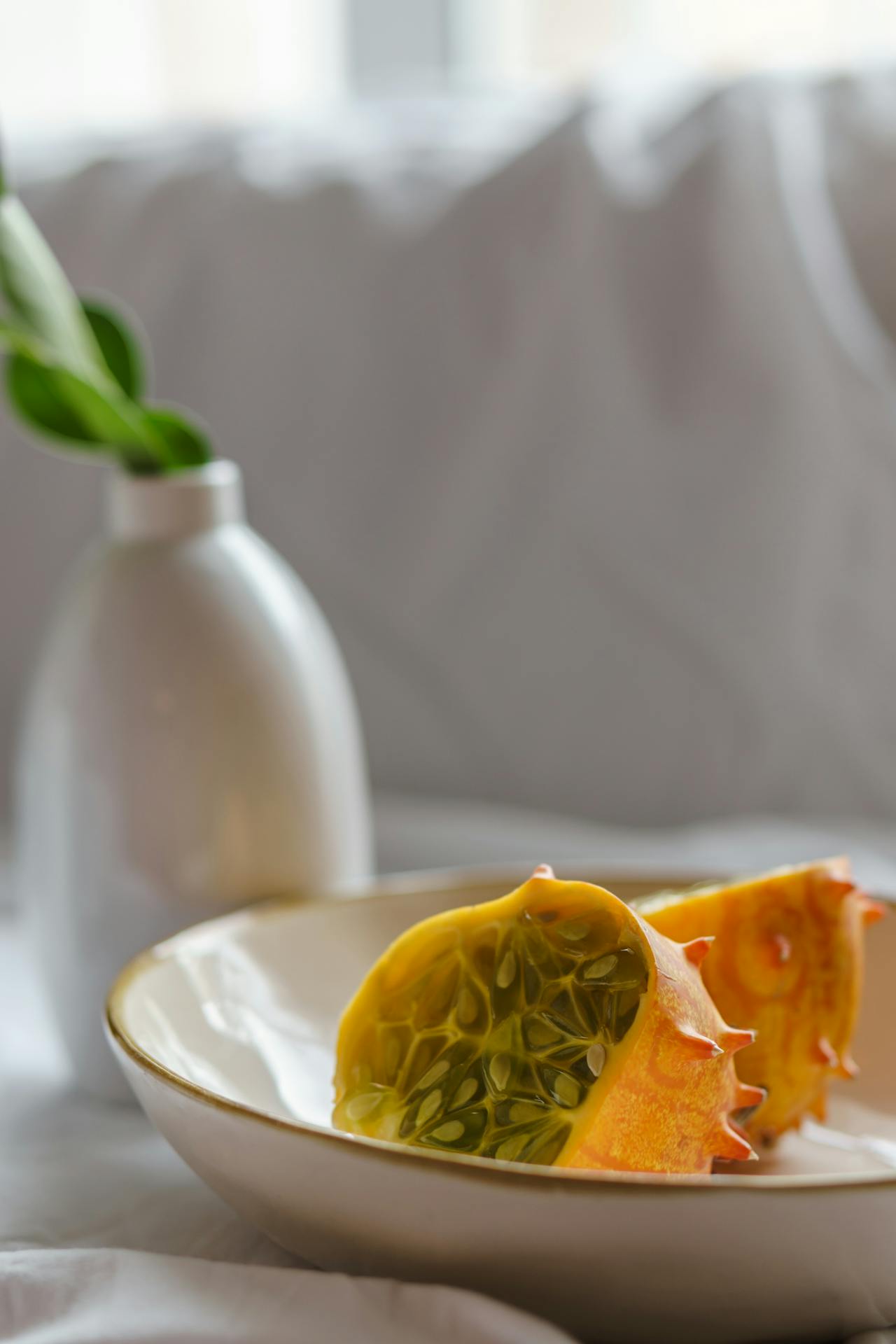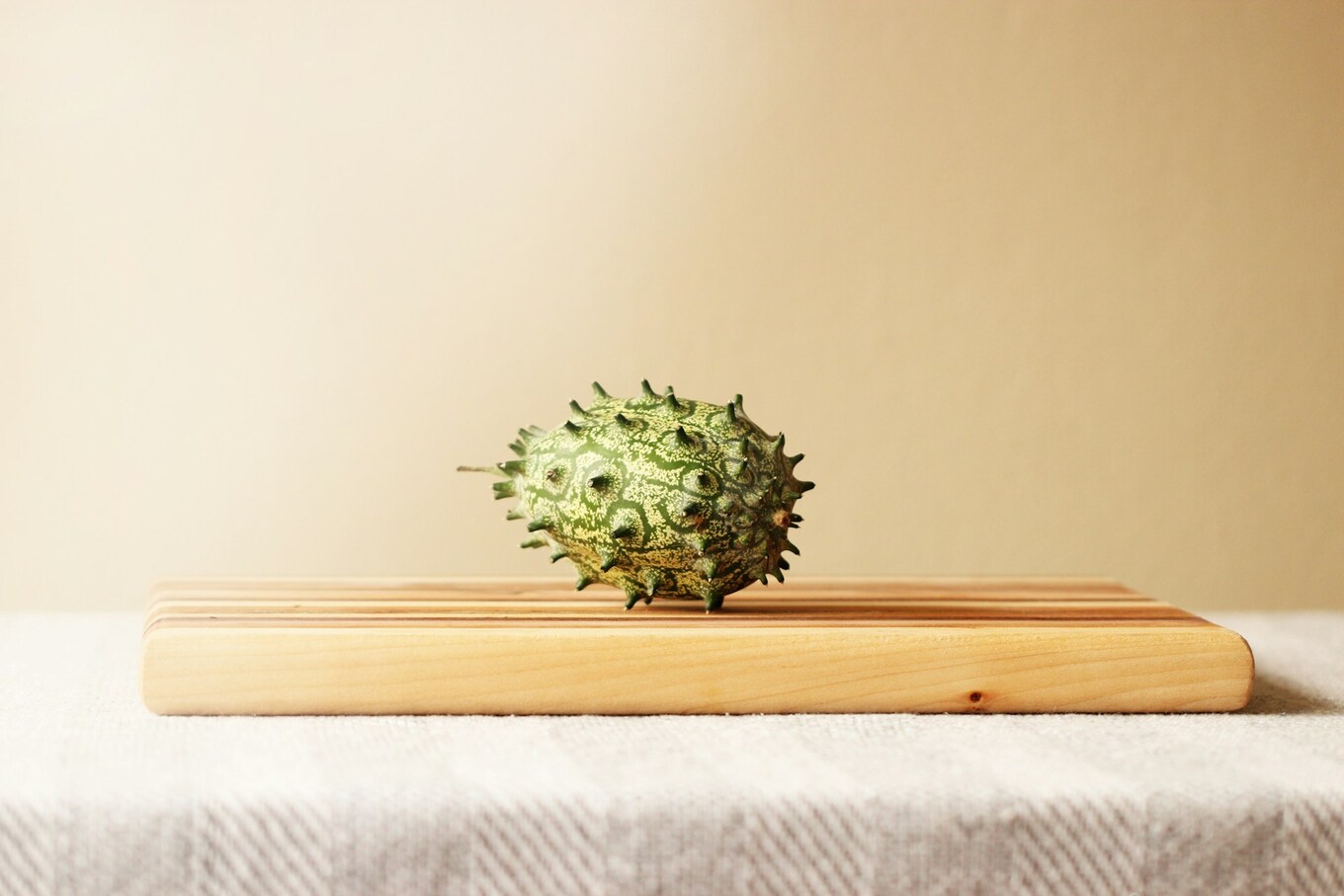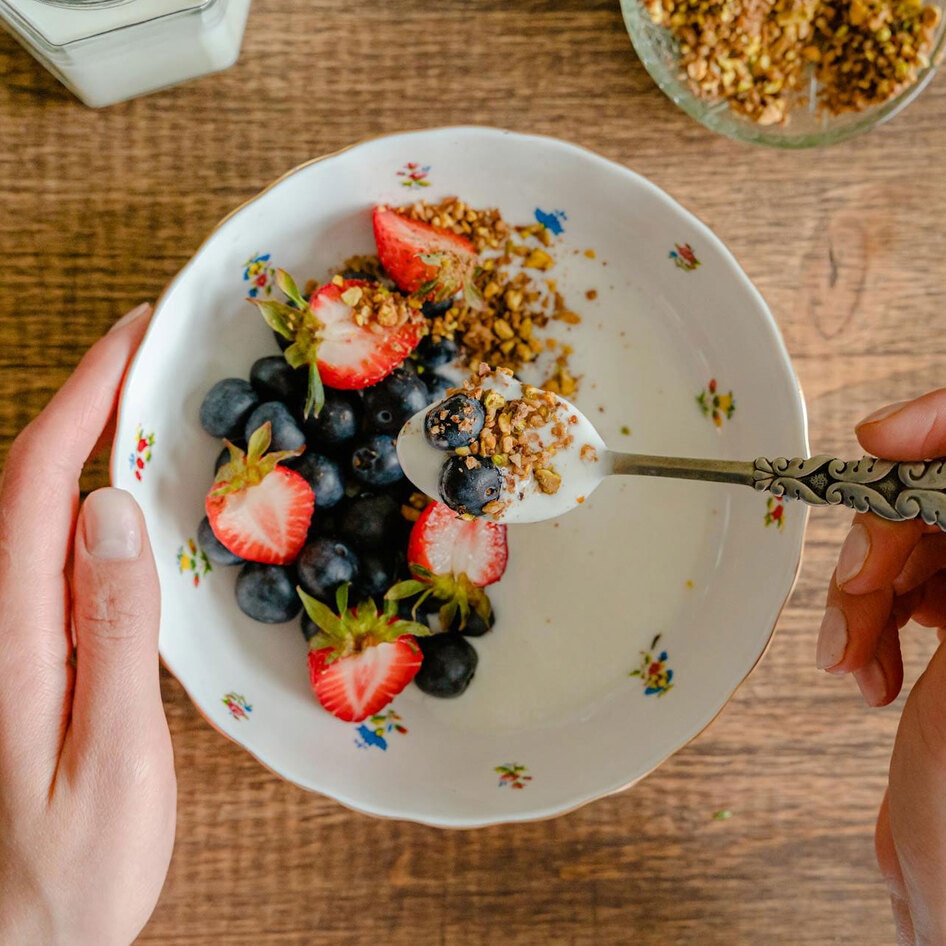A Family Affair, the new rom-com starring Zac Efron and Nicole Kidman, has received mixed reviews since it landed on Netflix at the end of last month. But we’re not here to talk about whether you agree with Deadline’s review that it’s “a smart, character-driven rom-com,” or Variety’s declaration that it’s an “artless quickie.” We’re here to talk about melons—specifically the kiwano variety, which plays a key role in the ending of the movie.
Spoiler alert!
Efron and Kidman’s characters end up getting together in the end after they are lured to a grocery store to “bump into each other” by their family members. In a bid to get Kidman’s character Brooke to the store, Leila (Brooke’s mother-in-law, played by Kathy Bates) says she needs one specific melon to help prevent her from developing dementia: a kiwano horned melon. Of course, it’s all a ruse. But is there any truth in the idea that one specific melon could help support good brain health? Actually, maybe.
What is a kiwano horned melon?
As you’ll know if you’ve seen A Family Affair, kiwano melons have a unique, bright orange-yellow spiky exterior (hence the nickname, horned melon). They are a fruit native to sub-Saharan Africa and belong to the cucumber and melon family, Cucurbitaceae. Inside, the flesh of the melon is vibrant lime green, gelatinous, and filled with seeds (this is why it has another nickname: jelly melon). The taste is a mix of cucumber, zucchini, kiwi, and banana—it’s mildly sweet and slightly tangy.
 Pexels
Pexels
Can kiwano melon actually prevent dementia?
It is not accurate to state that kiwano melons can prevent dementia—there is no single fruit, vegetable, or any other type of food that can definitely prevent chronic illness.
However, incorporating more kiwano melons into your diet might help to reduce the risk. This is because they are a good source of antioxidants like vitamin C, vitamin A, and beta-carotene, which help reduce oxidative stress in the body, including the brain. Oxidative stress is linked to cognitive decline and neurodegenerative diseases.
These unique fruits also provide essential nutrients such as magnesium, potassium, and zinc. Magnesium and potassium are crucial for maintaining proper neurological function, while zinc is important for brain health and cognitive function. Plus, the high water content helps maintain hydration, which is vital for optimal brain function.
 Unsplash
Unsplash
The health benefits of a kiwano melon
Because it is nutrient-dense, a kiwano melon can offer many health benefits. Its antioxidant content, for example, means that it may help to reduce the risk of many chronic diseases—not just dementia, but also heart disease and cancer.
The high vitamin C content in a kiwano melon also helps to support immune function by stimulating the production of white blood cells, and it is high in dietary fiber, which aids in digestion by promoting regular bowel movements and preventing constipation.
Fiber is also extremely important when it comes to reducing the risk of colon cancer. “Fiber is important for keeping us regular as most of us know, but it’s also the foundation for a healthy gut,” Nichole Dandrea-Russert, MS, RDN, and author of The Fiber Effect, told VegNews. “A healthy gut leads to less acute and chronic inflammation, both in the gut and throughout the body.”
It’s not just melons that have these benefits, but all plant-based whole foods. In the world’s Blue Zones, which are hotspots for longevity, people eat mostly plants, including fruits, vegetables, nuts, seeds, and legumes. “Overall, the best thing we can do, longevity-wise, to add another six-to-10 years to life is to learn how to cook a whole-food, plant-based diet at home,” says Dan Buettner, the author and explorer who has dedicated two decades of his life to studying the Blue Zones.
In A Family Affair Brooke brands the idea that a melon could help prevent dementia as “ridiculous,” but perhaps Leila was onto something. To try kiwano for yourself, head to stores like Kroger, Ralphs, or browse on Amazon.
For more plant-based stories like this, read:
JUMP TO ... Latest News | Recipes | Guides | Health | Shop
Here at VegNews, we live and breathe the plant-based lifestyle, and only recommend products we feel make our lives amazing. Occasionally, articles may include shopping links where we might earn a small commission, but in no way does this effect the editorial integrity of VegNews.









